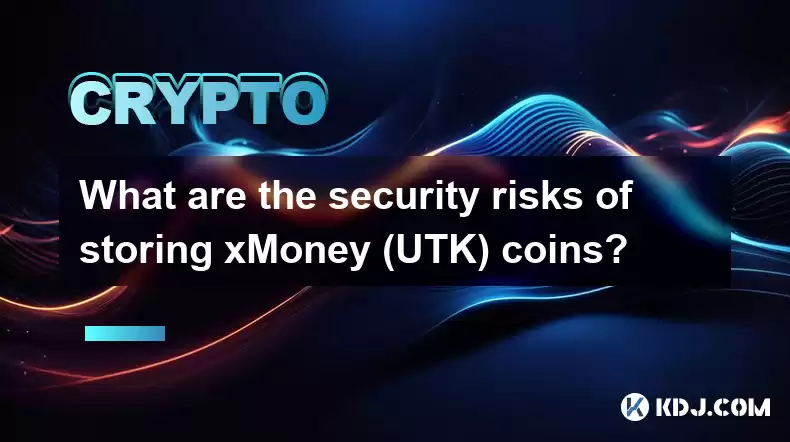-
 Bitcoin
Bitcoin $116900
0.00% -
 Ethereum
Ethereum $4280
5.48% -
 XRP
XRP $3.265
-1.45% -
 Tether USDt
Tether USDt $1.000
-0.01% -
 BNB
BNB $807.0
1.41% -
 Solana
Solana $183.1
2.93% -
 USDC
USDC $0.9999
0.00% -
 Dogecoin
Dogecoin $0.2440
6.50% -
 TRON
TRON $0.3357
-0.88% -
 Cardano
Cardano $0.8178
2.63% -
 Hyperliquid
Hyperliquid $44.13
7.45% -
 Chainlink
Chainlink $21.39
9.09% -
 Stellar
Stellar $0.4524
-0.84% -
 Sui
Sui $3.957
2.13% -
 Bitcoin Cash
Bitcoin Cash $572.7
-2.54% -
 Hedera
Hedera $0.2671
1.54% -
 Avalanche
Avalanche $24.77
4.17% -
 Ethena USDe
Ethena USDe $1.001
0.02% -
 Litecoin
Litecoin $122.3
-1.94% -
 Toncoin
Toncoin $3.432
2.26% -
 UNUS SED LEO
UNUS SED LEO $9.007
0.49% -
 Shiba Inu
Shiba Inu $0.00001396
5.26% -
 Uniswap
Uniswap $11.09
1.64% -
 Polkadot
Polkadot $4.155
4.57% -
 Dai
Dai $1.000
0.00% -
 Pepe
Pepe $0.00001253
5.11% -
 Cronos
Cronos $0.1588
2.67% -
 Bitget Token
Bitget Token $4.512
0.05% -
 Monero
Monero $275.0
0.64% -
 Ethena
Ethena $0.7527
15.10%
What are the security risks of storing xMoney (UTK) coins?
To enhance UTK coin security, implement robust measures like selecting secure wallets, enforcing strong passwords, enabling two-factor authentication (2FA), and storing private keys safely offline in hardware wallets or physically written form.
Dec 25, 2024 at 12:04 am

Key Points
- Vulnerability to Hacking Attacks: UTK coins, like other cryptocurrencies, are stored in digital wallets. These wallets can be susceptible to hacking attempts, where malicious actors exploit vulnerabilities to access and steal private keys, thus gaining control of the funds.
- Phishing Scams: Phishing attacks involve fraudulent attempts to acquire sensitive information, such as private keys or seed phrases, by disguising as legitimate entities. UTK users should be vigilant against such scams, verifying the authenticity of communication channels and avoiding clicking suspicious links.
- Malicious Software (Malware): Malware can infect devices and compromise the security of digital wallets, potentially exposing private keys and facilitating theft of UTK coins. Regular software updates and robust antivirus protection are crucial to mitigate these risks.
- Exchange Vulnerabilities: If UTK coins are stored on cryptocurrency exchanges, users need to assess the security measures implemented by these platforms. Exchanges may be susceptible to hacking attacks or internal fraud, potentially leading to the loss of funds.
- User Error (Common Mistakes): Accidental mistakes, such as sending UTK coins to an incorrect address or misplacing private keys, can result in irreversible loss of funds. Diligent verification of transaction details and secure storage of private keys are essential to avoid these risks.
Steps to Enhance UTK Coin Security
- Choosing a Secure Wallet: Select hardware wallets or reputable software wallets that offer robust security features, including two-factor authentication (2FA), multi-signature support, and offline storage options.
- Implementing Strong Passwords: Utilize complex and unique passwords for wallets and any accounts related to UTK coin management. Avoid using easily guessable information or reusing passwords across multiple platforms.
- Enabling Two-Factor Authentication (2FA): Implement 2FA whenever possible to add an extra layer of protection against unauthorized access. 2FA requires additional verification, such as a code sent to a mobile device, to complete transactions or access accounts.
- Storing Private Keys Safely: Keep private keys offline and separate from internet-connected devices. Consider using a hardware wallet or physically writing down private keys on a secure, offline medium, such as a fireproof safe.
- Staying Vigilant Against Phishing and Malware: Be cautious of suspicious emails, links, or messages that attempt to trick users into revealing sensitive information or downloading malware. Always verify the legitimacy of communication channels and sender identities before taking any action.
- Regularly Updating Software: Keep software up to date, including operating systems, wallet applications, and antivirus software. Regular updates often include security patches that address vulnerabilities and protect against emerging threats.
- Assessing Exchange Security Measures: If storing UTK coins on cryptocurrency exchanges, evaluate the platform's security protocols, including cold storage practices, insurance coverage, and regulatory compliance. Consider using reputable exchanges with a proven track record of security and reliability.
FAQs
How can I protect my UTK coins from hackers?
- Implement strong security measures such as using a secure wallet, enabling 2FA, and storing private keys safely. Regularly update software and remain vigilant against phishing and malware attacks.
Are hardware wallets more secure than software wallets?
- Yes, hardware wallets offer a higher level of security by storing private keys offline on a dedicated device. They are less susceptible to hacking attempts or malware infections compared to software wallets.
What is the best way to store private keys?
- The most secure way to store private keys is to use a hardware wallet or to physically write them down on an offline medium, such as a fireproof safe. Avoid storing private keys on internet-connected devices or sharing them with third parties.
How can I avoid phishing scams?
- Be cautious of unsolicited emails, links, or messages requesting sensitive information. Verify the legitimacy of communication channels and sender identities by visiting official websites directly rather than clicking on links provided in suspicious messages.
What are the risks of storing UTK coins on cryptocurrency exchanges?
- While exchanges offer convenience, they may be vulnerable to hacking attacks or internal fraud. Evaluate an exchange's security measures, including cold storage practices, insurance coverage, and regulatory compliance, before trusting them with your UTK coins.
Disclaimer:info@kdj.com
The information provided is not trading advice. kdj.com does not assume any responsibility for any investments made based on the information provided in this article. Cryptocurrencies are highly volatile and it is highly recommended that you invest with caution after thorough research!
If you believe that the content used on this website infringes your copyright, please contact us immediately (info@kdj.com) and we will delete it promptly.
- Cold Wallet's Presale: A High ROI Haven in the Crypto Storm
- 2025-08-10 12:50:11
- Meme Coins in 2025: Analyst Accumulation and the Hunt for the Next Moonshot
- 2025-08-10 13:10:11
- Meme Coins in 2025: Early Access to the Moon with $MOBU
- 2025-08-10 12:30:11
- Bitcoin's Golden Cross: Rally Outlook and What's Next
- 2025-08-10 12:30:11
- XRP Price, Remittix, and Ripple Rivals: A Crypto Cocktail
- 2025-08-10 10:50:16
- Live Crypto Updates, August 10: ETH Soars, Trump's Crypto Play, and More!
- 2025-08-10 11:30:16
Related knowledge

How to purchase Aragon (ANT)?
Aug 09,2025 at 11:56pm
Understanding Aragon (ANT) and Its PurposeAragon (ANT) is a decentralized governance token that powers the Aragon Network, a platform built on the Eth...

What is the most secure way to buy Ocean Protocol (OCEAN)?
Aug 10,2025 at 01:01pm
Understanding Ocean Protocol (OCEAN) and Its EcosystemOcean Protocol (OCEAN) is a decentralized data exchange platform built on blockchain technology,...

Where can I buy UMA (UMA)?
Aug 07,2025 at 06:42pm
Understanding UMA and Its Role in Decentralized FinanceUMA (Universal Market Access) is an Ethereum-based decentralized finance (DeFi) protocol design...

How to buy Storj (STORJ) tokens?
Aug 09,2025 at 07:28am
Understanding Storj (STORJ) and Its Role in Decentralized StorageStorj is a decentralized cloud storage platform that leverages blockchain technology ...

What is the best app to buy Nano (NANO)?
Aug 09,2025 at 03:35am
Understanding Nano (NANO) and Its Unique FeaturesNano is a feeless, instant cryptocurrency designed for fast peer-to-peer transactions. Unlike many ot...

Where can I purchase Siacoin (SC)?
Aug 08,2025 at 11:14am
Understanding Siacoin (SC) and Its Role in the Sia NetworkSiacoin (SC) is the native cryptocurrency of the Sia decentralized cloud storage platform, a...

How to purchase Aragon (ANT)?
Aug 09,2025 at 11:56pm
Understanding Aragon (ANT) and Its PurposeAragon (ANT) is a decentralized governance token that powers the Aragon Network, a platform built on the Eth...

What is the most secure way to buy Ocean Protocol (OCEAN)?
Aug 10,2025 at 01:01pm
Understanding Ocean Protocol (OCEAN) and Its EcosystemOcean Protocol (OCEAN) is a decentralized data exchange platform built on blockchain technology,...

Where can I buy UMA (UMA)?
Aug 07,2025 at 06:42pm
Understanding UMA and Its Role in Decentralized FinanceUMA (Universal Market Access) is an Ethereum-based decentralized finance (DeFi) protocol design...

How to buy Storj (STORJ) tokens?
Aug 09,2025 at 07:28am
Understanding Storj (STORJ) and Its Role in Decentralized StorageStorj is a decentralized cloud storage platform that leverages blockchain technology ...

What is the best app to buy Nano (NANO)?
Aug 09,2025 at 03:35am
Understanding Nano (NANO) and Its Unique FeaturesNano is a feeless, instant cryptocurrency designed for fast peer-to-peer transactions. Unlike many ot...

Where can I purchase Siacoin (SC)?
Aug 08,2025 at 11:14am
Understanding Siacoin (SC) and Its Role in the Sia NetworkSiacoin (SC) is the native cryptocurrency of the Sia decentralized cloud storage platform, a...
See all articles

























































































